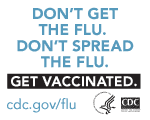Data & Statistics
Other Features
Featured Data & Statistics

2005 ART Clinic Success Rates Report
Type, number, and outcome of assisted reproductive technology cycles in U.S. fertility clinics.
Data provided by U.S. clinics that use assisted reproductive technology (ART) to treat infertility are a rich source of information about the factors that contribute to a successful ART treatment—the delivery of a live-born infant. Pooling the data from all reporting clinics provides an overall national picture that could not be obtained by examining data from an individual clinic.
The data for this national report come from the 422 fertility clinics in operation in 2005 that provided and verified data on the outcomes of all ART cycles started in their clinics. The 134,260 ART cycles performed at these reporting clinics in 2005 resulted in 38,910 live births (deliveries of one or more living infants) and 52,041 infants.
A woman’s chances of having a pregnancy and a live birth by using ART are influenced by many factors, some of which are patient-related and outside a clinic’s control (e.g., the woman’s age, the cause of infertility). Because the national data set includes information on many of these factors, it can give potential ART users an idea of their average chances of success. Average chances, however, do not necessarily apply to a particular individual or couple. People considering ART should consult their physician to discuss all the factors that apply in their particular case.
Data Source:
Centers for Disease Control and Prevention, American Society for Reproductive Medicine, Society for Assisted Reproductive Technology. 2005 Assisted Reproductive Technology Success Rates: National Summary and Fertility Clinic Reports, Atlanta: Centers for Disease Control and Prevention; 2007. (URL: http://www.cdc.gov/ART/ART2005/index.htm)
Related Links:
The following national consumer organizations offer support to people experiencing infertility:
American Fertility Association*
The American Fertility Association (AFA) is a national consumer organization that offers support for men and women dealing with infertility. Their purpose is to educate the public about reproductive disease, and support families during struggles with infertility and adoption.
RESOLVE: The National Infertility Association*
RESOLVE is a national consumer organization that offers support for men and women dealing with infertility. Their purpose is to provide timely, compassionate support and information to people who are experiencing infertility and to increase awareness of infertility issues through public education and advocacy.
Fertile Hope*
Fertile Hope is a national nonprofit organization dedicated to providing reproductive information, support and hope to cancer patients whose medical treatments present the risk of infertility.
Other Related Links:
CDC’s Division of Reproductive Health ART Surveillance System
Society for Assisted Reproductive Technology*
The Society for Assisted Reproductive Technology (SART) promotes and advances the standards for the practice of assisted reproductive technology to the benefit of patients, members and society at large.
*Links to non-federal organizations are provided solely as a service to our users. These links do not constitute an endorsement of these organizations or their programs by CDC or the federal government, and none should be inferred. CDC is not responsible for the content of the individual organization Web pages found at these links.
Page last updated: December 21, 2007
Content source:National Center for Chronic Disease Prevention and Health Promotion, Divison of Reproductive Health
Content owner: National Center for Health Marketing
URL for this page: http://www.cdc.gov/DataStatistics/2007/art/

